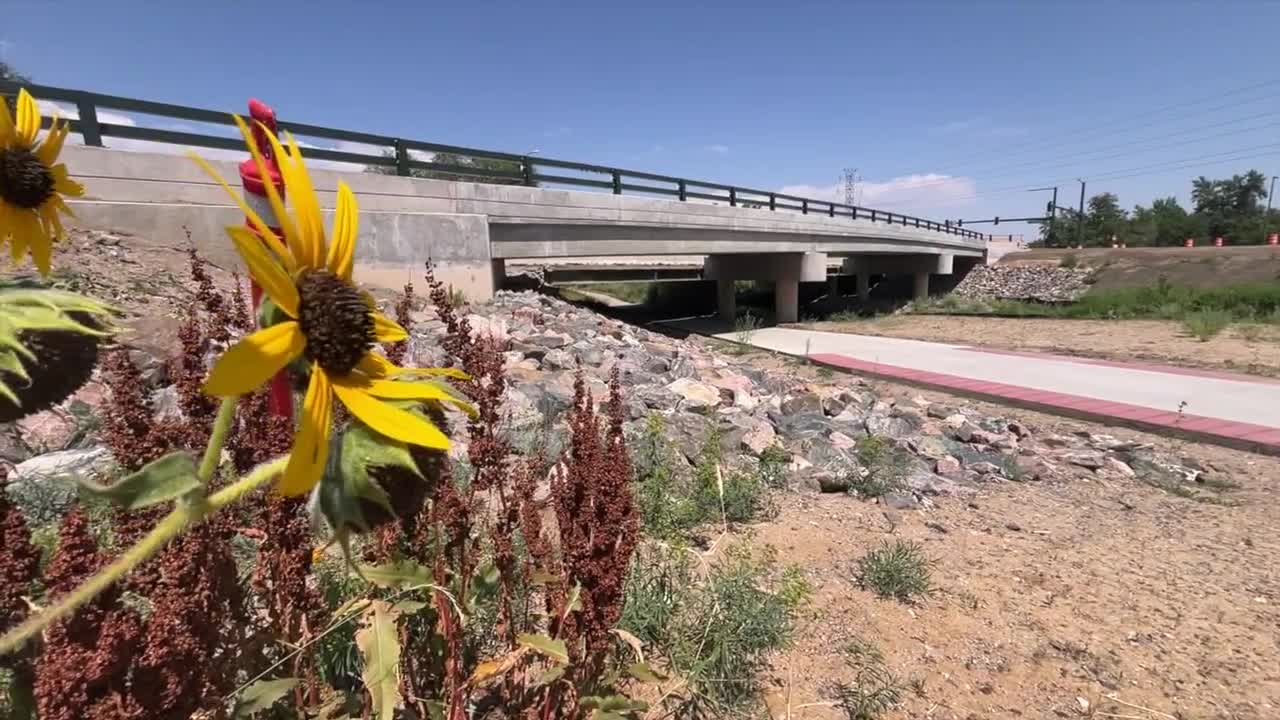DENVER — Bridges are a critical part of any city’s infrastructure, but many of Denver’s bridges are in dire need of repair.
Denver7 did some digging and found 11% of bridges in Denver are in “poor” condition. The percentage is even higher for bridges that vehicles travel over.
Nancy Kuhn, the communications director with the Denver Department of Transportation and Infrastructure (DOTI), said many of the city’s bridges are old. She said some of them were built in the 1940s, 1950s, and 1960s.
“Some are even older,” said Kuhn.
She said the average age of Denver’s bridges is 38 years, but added that the 646 bridges owned by the city are inspected regularly.
“Vehicular bridges [we inspect] every two years, pedestrian bridges every three years,” said Kuhn.
Data from DOTI shows 11% of the city’s bridges are considered to be in "poor" condition. That includes bridges for pedestrians and trains.
But about 14% of bridges that vehicles travel over are considered to be in “poor condition.”
- Denver7 obtained data from DOTI on bridge conditions from around the city. See the breakdown in the graph below:
DOTI said just because a bridge is rated in poor condition, it doesn’t mean it’s unsafe.
“It's important for people to know that if a bridge is given a poor rating, it doesn't mean it's unsafe to cross,” said Kuhn. “We are not operating bridges that are unsafe to be on.”
She said what it does mean is that a bridge needs to be monitored and prioritized for maintenance or replacement. “And it requires extra eyes on it, so we inspect it more frequently,” said Kuhn.
Construction crews are currently working to replace the Monaco Street bridge over Cherry Creek in southeast Denver.

The Vibrant Denver bond package would provide $30 million to replace the 6th Avenue and Lincoln Street bridges over Cherry Creek in downtown.
Both bridges are over 60 years old and near the end of their service lives. City documents show that if the bridges aren't replaced, some emergency vehicles like ambulances could be restricted from using them some day.
"When you're looking at infrastructure — major infrastructure — funding is always the challenge,” said Kuhn. "It would be so critical for us to get this bond.”
Kuhn said DOTI relies on capital improvement funding and bond programs for bridge maintenance, rehabilitation, and replacement.
The Vibrant Denver bond would provide $427 million for transportation and mobility projects, according to Denver Mayor Mike Johnston’s office.
“Every few years we come together as a city to set our shared priorities—like making neighborhoods safer, more connected, and more vibrant,” said Johnston in a statement. “This package delivers on those goals by repairing the roads we drive on, fixing the bridges we cross, improving the parks and rec centers our families use, and investing in libraries that serve as community hubs. I’m deeply grateful to everyone who helped shape this effort, and excited to bring these improvements to every corner of Denver.”

Should the city council give its approval, it will be up to voters this November to decide whether to approve the bond and pay for these critical transportation upgrades.
DOTI offers an online and interactive dashboard that allows citizens to learn more about bridge conditions and ongoing maintenance projects.
Kuhn said citizens can report concerns about a particular bridge by calling 311.
DOTI is not responsible for every bridge in Denver. The Colorado Department of Transportation (CDOT) is responsible for some bridges, including interstate bridges.





